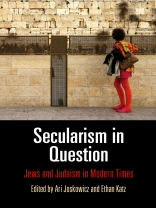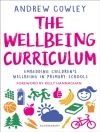For much of the twentieth century, most religious and secular Jewish thinkers believed that they were witnessing a steady, ongoing movement toward secularization. Toward the end of the century, however, as scholars and pundits began to speak of the global resurgence of religion, the normalization of secularism could no longer be considered inevitable. Recent decades have seen the strengthening of Orthodox movements in the United States and in Israel; religious Zionism has grown and radically changed since the 1960s, and new and vibrant nondenominational Jewish movements have emerged.
Secularism in Question examines the ways these contemporary revivals of religion prompt a reconsideration of many issues concerning Jews and Judaism from the early modern era to the present. Bringing together scholars of history, religion, philosophy, and literature, this volume illustrates how the categories of ‘religious’ and ‘secular’ have frequently proven far more permeable than fixed. The contributors challenge the problematic assumptions about the development of secularism that emerge from Protestant European and American perspectives and demonstrate that global Jewish experiences necessitate a reappraisal of conventional narratives of secularism. Ultimately, Secularism in Question calls for rethinking the very terms that animate many of the most contentious debates in contemporary Jewish life and far beyond.
Contributors: Michal Ben-Horin, Aryeh Edrei, Jonathan Mark Gribetz, Ari Joskowicz, Ethan B. Katz, Eva Lezzi, Vivian Liska, Rachel Manekin, David Myers, Amnon Raz-Krakotzkin, Andrea Schatz, Christophe Schulte, Daniel B. Schwartz, Galili Shahar, Scott Ury.
Зміст
Introduction. Rethinking Jews and Secularism
—Ari Joskowicz and Ethan Katz
PART I. NARRATIONS
Chapter 1. ‘Our Rabbi Baruch’: Spinoza and Radical Jewish Enlightenment
—Daniel B. Schwartz
Chapter 2. Reading Mendelssohn in Late Ottoman Palestine: An Islamic Theory of Jewish Secularism
—Jonathan Marc Gribetz
Chapter 3. Tradition and the Hidden: Hannah Arendt’s Secularization of Jewish Mysticism
—Vivian Liska
PART II. TRANSFORMATIONS
Chapter 4. Messianism Without Messiah: Messianism, Religion, and Secularization in Modern Jewish Thought
—Christoph Schulte
Chapter 5. In the Name of the Devil: Reading Walter Benjamin’s ‘Agesilaus Santander’
—Galili Shahar
Chapter 6. The Secular and Its Dissonances in Modern Jewish Literature
—Michal Ben-Horin
Chapter 7. Civil Society, Secularization, and Modernity Among Jews in Turn-of-the-Century Eastern Europe
—Scott Ury
Chapter 8. Secular French Nationhood and Its Discontents: Jews as Muslims and Religion as Race in Occupied France
—Ethan Katz
PART III. ADAPTATIONS
Chapter 9. Galician Haskalah and the Discourse of Schwärmerei
—Rachel Manekin
Chapter 10. Secularism and Neo-Orthodoxy: Conflicting Strategies in Modern Orthodox Fiction
—Eva Lezzi
Chapter 11. Secularism and Nationalism: The Modern Halakhic Discourse on the Identity and Boundaries of the Jewish Community
—Arye Edrei
PART IV. NEW CONCEPTIONS: A FORUM
Chapter 12. Between Supersessionism and Atavism: Toward a Neosecular View of Religion
—David N. Myers
Chapter 13. Secularism, the Christian Ambivalence Toward the Jews, and the Notion of Exile
—Amnon Raz-Krakotzkin
Chapter 14. ‘Eleven Calendars’: Beyond Secular Time
—Andrea Schatz
Notes
List of Contributors
Index
Про автора
Ari Joskowicz teaches Jewish studies and European studies at Vanderbilt University. He is author of The Modernity of Others: Jewish Anti-Catholicism in Germany and France. Ethan B. Katz teaches history at the University of Cincinnati.












